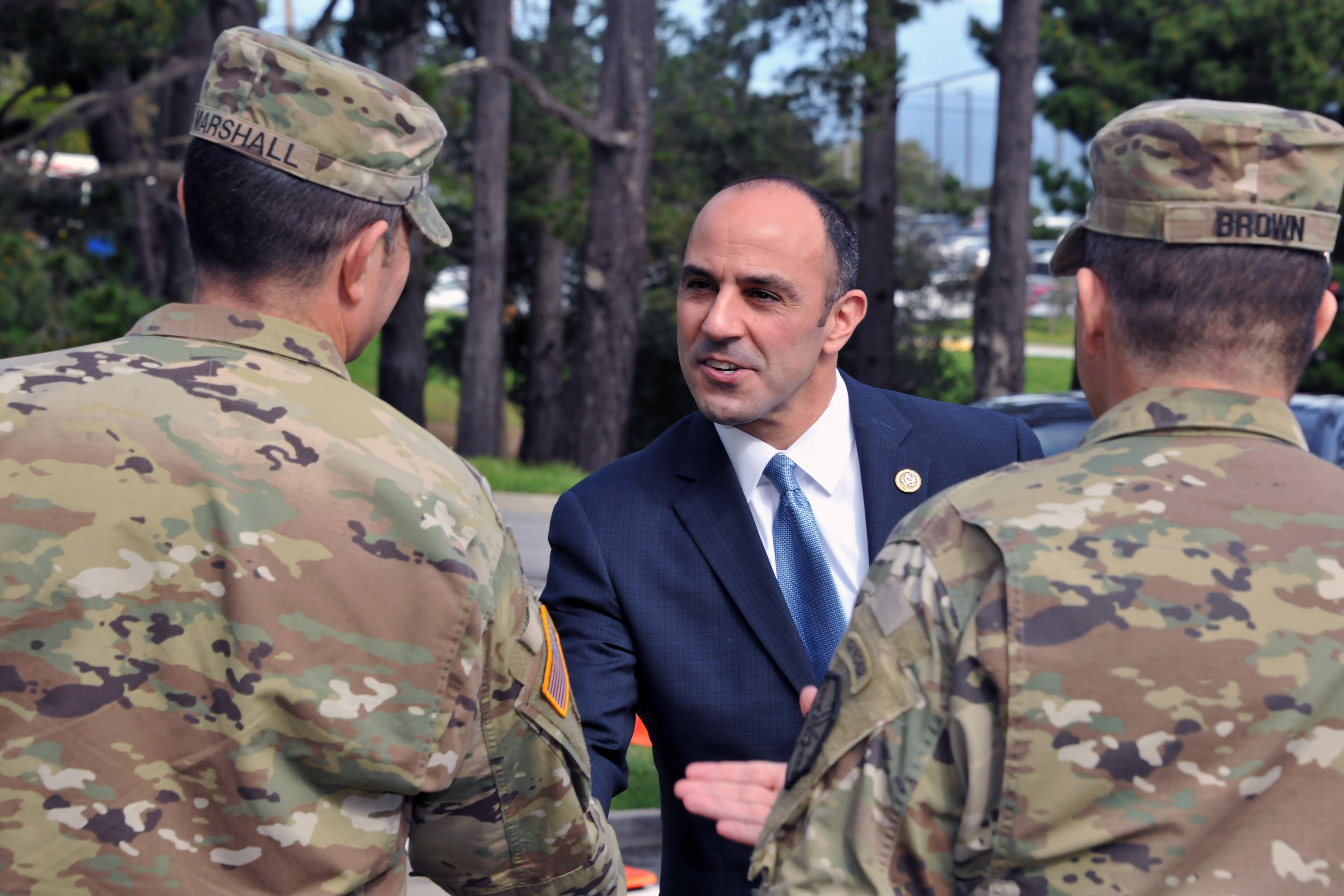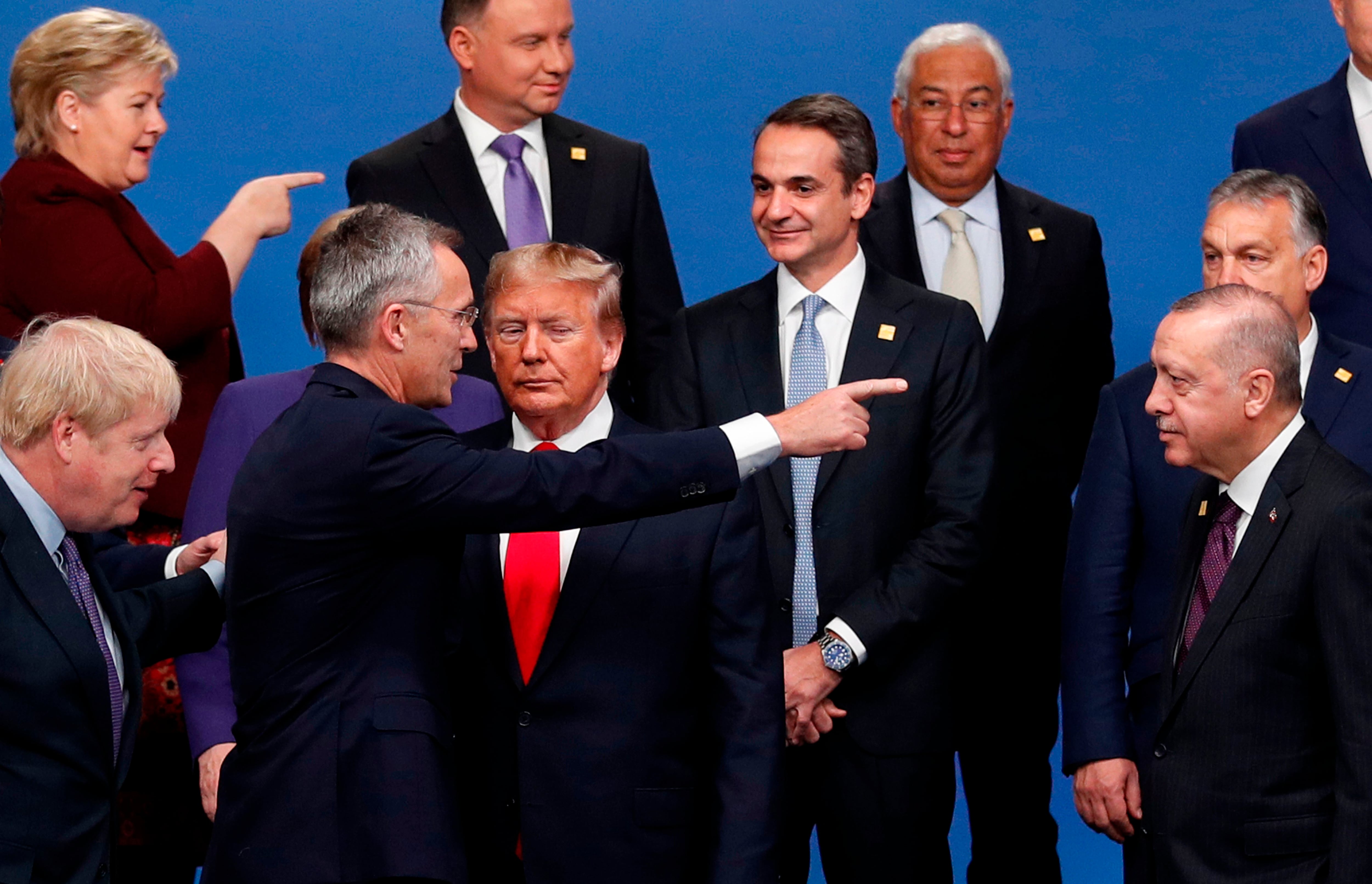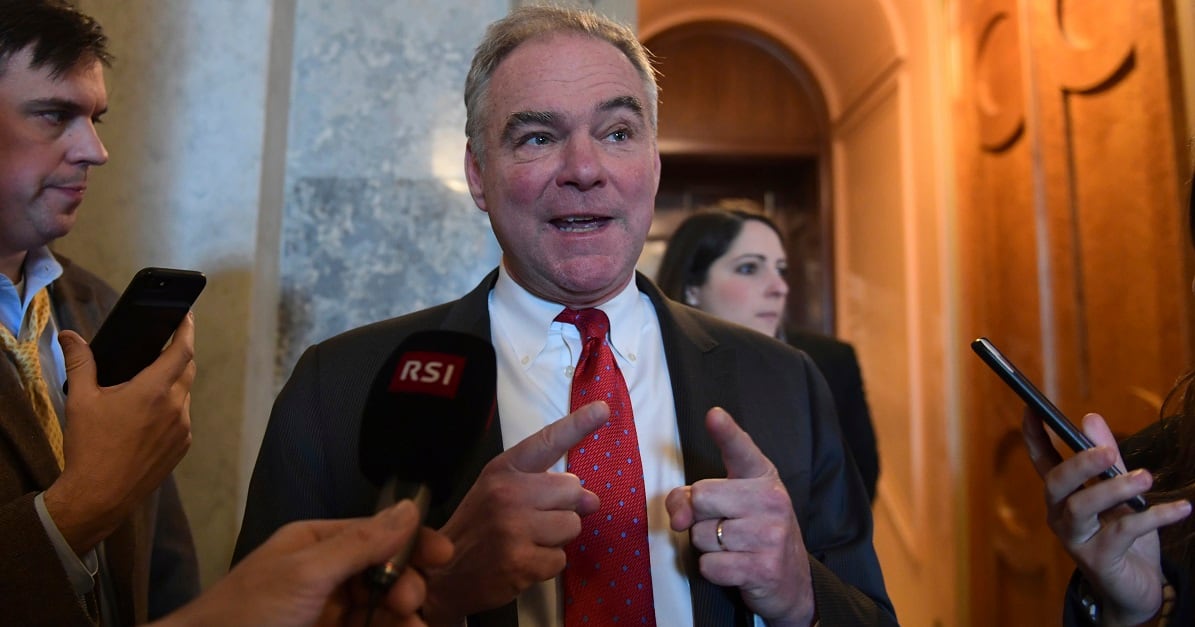WASHINGTON ― Amid uncertainty over President Donald Trump’s intentions toward NATO, Congress is taking bipartisan action to stop him from withdrawing from the alliance.
In recent weeks, lawmakers in both chambers have taken steps to reaffirm its unwavering support for the military alliance and make it tougher for Trump to unilaterally withdraw from NATO ― all to counterbalance the president’s sometimes antagonistic rhetoric and, reportedly, his openness to a withdrawal.
The House last week passed a sweeping defense policy bill that would reaffirm strong congressional support for NATO and prohibit the use of U.S. funds to withdraw from the alliance. The Senate is expected to send the bill, the 2020 National Defense Authorization Act, to Trump, who has said he will sign it into into law.
"The NDAA ensures that America not only is a reliable partner in NATO, but that NATO remains the cornerstone for peace and prosperity throughout the world,” the author of the language, Rep. Jimmy Panetta, D-Calif., said in a statement last week.
The action is meant to reassure allies as trans-Atlantic ties have been frayed by disputes over defense spending, trade, America’s withdrawal from the Iran nuclear deal, and Turkey’s invasion of northern Syria as well as its purchase of a Russian air defense system.

House overwhelmingly passed Panetta’s language in January, and NATO Secretary General Jens Stoltenberg made a warmly received joint address to Congress in April.
On Dec. 11, the Senate Foreign Relations Committee took a step of its own. Voting unanimously, the committee advanced a bipartisan bill that would require congressional approval before any U.S. withdrawal, in effect closing a loophole in the U.S. Constitution.
To enter into a treaty requires the advice and consent of the Senate, and a two-thirds majority vote, the Constitution says, but it is silent on what it takes for presidents to exit a treaty ― and it’s assumed they can unilaterally withdraw. The Senate legislation would bar funding to leave NATO, absent a two-thirds vote to do so.
The action comes weeks after leaders of the 29 NATO states met to mark the pact’s 70th anniversary. The gathering was marked by a few sour notes, including Trump calling Prime Minister Justin Trudeau “two-faced” after a video emerged showing the Canadian leader gossiping about the U.S. president.
News reports Trump mulled a withdrawal have muddied the perception of America’s commitment to the alliance, even as he said in January: "We will be with NATO 100 percent, but as I told the countries, you have to step up [defense spending].”

According to an NBC report citing unnamed sources, Trump’s former national security advisor, John Bolton, said in a private speech in November that if Trump is reelected, he could go full isolationist and withdraw the U.S. from NATO and other international alliances.
Will it matter?
Even if Congress prohibits Trump from exiting NATO, it may be of limited effect because he can undermine it in other ways, according to Jim Townsend, a former deputy assistant secretary of defense for Europe, now with the Center for a New American Security. The president has discretion to respond marginally to NATO operations or exercises ― and to send junior officials to its high-level meetings.
“There are a lot of ways to minimize our impact short of withdrawing, if that’s really what he’s up to,” Townsend said of the president. “But if Congress is saying it’s solidly behind NATO, I think that is reassuring.”
In comparison to Trump’s dismissal of “delinquent” members at last year’s NATO summit, Trump caused few fireworks in London this year, as a new cost-sharing arrangement was established.
Still, Townsend said, Trump’s changeability fuels mistrust among alliance members, and it’s caused them to hedge.
“Maybe he behaved himself during the London meetings, but that doesn’t mean that, for some reason, he doesn’t get pissed off and try to pull out,” Townsend said. "While there is some reassurance with what the Hill says, and there is reassurance he behaved himself the past couple weeks, there is no trust anymore that you can depend on this being a course correction. He’s too mercurial.”
In a hallway interview at the Capitol, Senate Foreign Relations Committee Chairman Jim Risch, R-Idaho, downplayed the idea the action by his committee was sorely needed.
“This country is committed NATO, it will always be committed to NATO. It’s the most successful military alliance in the history of the world, and that’s not going to change,” Risch said.
“The allies are always nervous, primarily because we’re the 800-pound gorilla and the glue that keeps that [alliance] together,” he said. “As long as I’ve been watching it, as long I have been in this business, they like reassurance, and we regularly give it to them.”

That reassurance is coming from both sides of the aisle. The bill that cleared Risch’s committee was led by Sen. Tim Kaine, D-Va., and co-sponsored by Sens. Cory Gardner, R-Colo.; Jack Reed, D-R.I.; Lindsey Graham, R-S.C.; Chris Coons, D-Del.; Marco Rubio, R-Fla.; Richard Blumenthal, D-Conn.; and Susan Collins, R-Maine.
“We’ve slowly built a consensus among Democrats and Republicans that NATO has value, that the only benefactor if the U.S. pulled out of NATO would be [Russian President] Vladimir Putin and Russia,” Kaine recently said on MSNBC.
A member of the Senate Foreign Relations and Armed Services committees, Kaine originally introduced the bill with Sen. John McCain, R-Ariz., who died in 2018. Kaine said French President Emmanuel Macron’s criticism that NATO is experiencing “brain death” because of America’s lack of commitment is just one recent example of why reassurance is needed.
“We want to make clear to our allies, to the president and especially to Russia that Congress supports the U.S. staying in NATO," Kaine said, "and we’re not going to let a president back out of it on his own.”
Joe Gould was the senior Pentagon reporter for Defense News, covering the intersection of national security policy, politics and the defense industry. He had previously served as Congress reporter.




